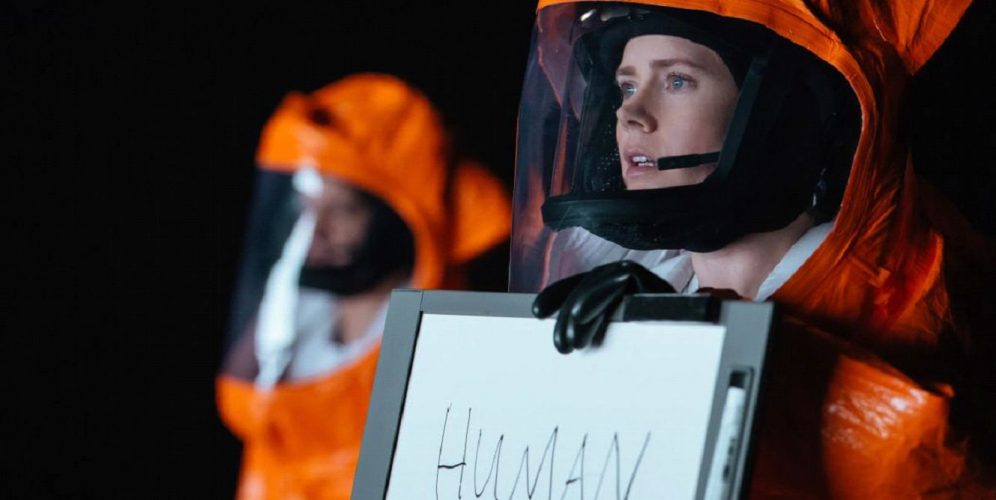By Sarah-Claire Jordan
 In the film industry, the closest relationship movies tend to have with translation are the subtitles and dubbing needed to make a film marketable in other countries. There have been a few movies in the past decade or so that have linguistics as a main plot device, but few of them were blockbusters or won any awards. It seems like, when it comes to surrendering oneself to the world of a film, translation and linguistics are just not as appealing as themes compared to the myriad other themes a movie can focus on.
In the film industry, the closest relationship movies tend to have with translation are the subtitles and dubbing needed to make a film marketable in other countries. There have been a few movies in the past decade or so that have linguistics as a main plot device, but few of them were blockbusters or won any awards. It seems like, when it comes to surrendering oneself to the world of a film, translation and linguistics are just not as appealing as themes compared to the myriad other themes a movie can focus on.
This is rather unfortunate, however, as linguists, translators, and interpreters are just as vital in many situations as firefighters, police officers, and other roles we have collectively decided are heroic and important. Linguists may not be front and center like the more traditionally fearless and bold characters, but that doesn’t mean they are any less significant when it comes to handling a national or international crisis. In fact, without them certain issues cannot be resolved at all.
The translation in Arrival, the latest sci-fi thriller to hit the silver screen by November, is key to the whole movie. The main character, Dr. Banks, played by Amy Adams, is a linguist, interpreter, and translator who is called upon by the U.S. military to aid them in figuring out how to communicate with an alien species that seems to have landed on Earth. This is where xenolinguistics, or the study of alien languages, comes into play. Dr. Banks must use every bit of her knowledge and experience as a linguist to figure out how to understand and use the language of the alien visitors.
The usual translation pitfalls do happen in the film, too. For instance, there is a part where Dr. Banks translates an alien symbol to mean “offer weapon”, only to reconsider and dig deeper into the language to see if the aliens even have separate words for “tool” and “weapon”. This right here is exactly what can happen when translators have to deal with two languages that are very different. Some languages, even spoken here in the U.S., don’t have equivalent nouns for all of those that we have in English, and changes need to be made in the translation, such as more descriptive details, in order to get the same message across.
Dr. Banks plays a huge role in how the military personnel in the movie interact with the aliens. Had she not stopped to rehash her translation and realized that “weapon” and “tool” might be the same word for the visitors, the military that recruited her to help them might have gone ahead and started a full-on war against some beings that may have come in peace. This is an analogy that rings so true for linguists adept and experienced in handling communications between different countries, as one misstep in a translation or interpretation can cause huge disasters. The translation in Arrival may be fictional, but it has real life implications that most people who work outside of the language services industry would not understand.




